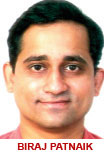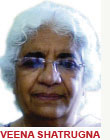Adding diversity to plate
The Government of India has proposed mandatory rice fortification to tackle the issue of malnutrition in the country. The process of fortification includes externally adding nutrients to a food item with
The Government of India has proposed mandatory rice fortification to tackle the issue of malnutrition in the country. The process of fortification includes externally adding nutrients to a food item with
The ICDS scheme is weighed down by several flaws, the worst of them being the attempt to target it for children of the poorest among the poor. At an anganwadi centre at Samar Gopalpur Kalan village in Haryana
New Delhi: An ambitious scheme envisaged to improve the nutritional status of adolescent girls aged between 11-18 years is likely to come up in the Union Cabinet on Thursday. Budgeted at Rs 4,500 crore, the Rajiv Gandhi Scheme for Empowerment of Adolescent Girls will empower adolescent girls by improving their nutritional and health status and upgrading vocational skills.
Widespread use of child labour in India is likely to take centrestage when the Planning Commission discusses the mid-term appraisal of skill development for the 11th Plan period (2007-12).
Present in every village, anganwadi workers have a standing that is turning them into a reforming force
With the Budget 2010-11 preparations in full swing, there is a growing realisation within the Manmohan Singh government that its flagship programmes, including the much-touted Jawaharlal Nehru National Urban Renewal Mission (JNNURM) and Sarva Shiksha Abhiyan (SSA) are performing much below par with the ministries concerned in some cases not being able to spend half of their Plan allocation.
In order to provide fresh cooked food under Midday Meal Scheme run by Rural Development Department the Women and Child Development Department will be launching Sanjha Chulha Yojana on November 1, said Minister of State for Women and Child Development Ranjana Baghel here today.
TIMES NEWS NETWORK New Delhi: Overturning her predecessor

There has been an animated debate in the past three years over the supply of food in the ICDS (Integrated Child Development Services) programme. Supplementary nutrition has been provided to all children under the age of six since the inception of the programme more than three decades ago. This was done with the recognition that the nutrition gap (between what children should be

The ICDS programme launched in the 1970s was based on the results of extensive surveys which identified rampant child under-nutrition in India. Using the weight-for-age and height-for-age criteria, only 10 per cent children under five could be classified normal. And 15-20 per cent were underweight even when they were short. The situation has not improved in the past 35 years despite
THE government plans to centralise the purchase of medicines for its dispensaries and healthcare centres across the country, a health ministry official said. The step is being taken after social activists have alleged that a decentralise procurement system is breeding corruption, the official, who did not want to be named, said.